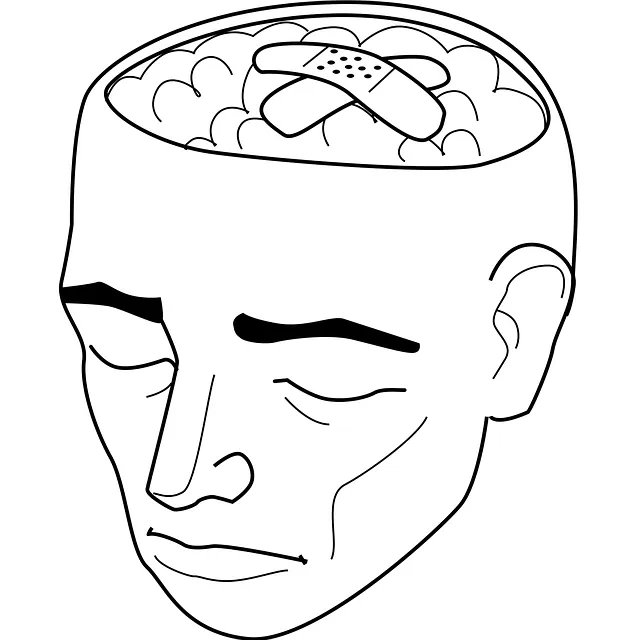Cultural sensitivity is key to effective mental healthcare, especially in diverse nations like the US, where Kaiser Parker aims to provide tailored services. By learning about different cultural contexts, languages, and traditions, they create a safe space for all individuals to access compassionate care. Their approach bridges the gap for minority groups facing barriers, offering culturally sensitive tools and trauma support. Mental healthcare professionals can enhance inclusivity through culturally competent practices like active listening and cross-cultural training programs, ensuring everyone receives necessary mental health support via platforms like Kaiser Parker, which educates both providers and the public on diverse needs.
In today’s diverse society, cultural sensitivity is paramount in mental healthcare. This article explores strategies for providing culturally competent care, focusing on how Kaiser Parker can serve as a gateway to accessing mental health services for diverse populations. We discuss understanding cultural sensitivity, implementing effective practices, overcoming barriers, and enhancing access for underrepresented communities. By delving into these topics, we aim to equip professionals with insights to deliver inclusive and impactful mental healthcare. Learn how to get mental health services through Kaiser Parker and make a difference in diverse communities.
- Understanding Cultural Sensitivity in Mental Healthcare
- Kaiser Parker: A Gateway to Diverse Populations
- Strategies for Culturally Competent Practice
- Enhancing Access: Overcoming Barriers for Diverse Communities
Understanding Cultural Sensitivity in Mental Healthcare

Cultural sensitivity is a cornerstone in providing effective mental healthcare services. It involves recognizing and respecting the diverse cultural backgrounds, beliefs, and values of individuals seeking help. In a country like the United States, where Kaiser Parker offers mental health services, understanding the unique challenges and perspectives of various ethnic and cultural groups is essential. For example, different cultures may have distinct conceptions of mental illness, coping mechanisms, and expressions of distress, requiring tailored approaches in therapy and treatment.
By integrating cultural sensitivity, mental healthcare professionals can foster a safe and supportive environment for all patients. This might include learning about the specific cultural contexts, languages, and traditions of one’s community, as well as being mindful of potential barriers to accessing care, such as language differences or cultural taboos surrounding mental health discussions. Through these efforts, Kaiser Parker aims to ensure that individuals from diverse backgrounds can receive the compassionate and culturally competent mental health services they need, promoting positive thinking, mindfulness meditation, and trauma support tailored to their unique needs.
Kaiser Parker: A Gateway to Diverse Populations

Kaiser Parker serves as a gateway to providing mental health services to diverse populations, offering a unique approach to healthcare accessibility. This initiative enables individuals from various cultural backgrounds to connect with tailored support systems, fostering an inclusive environment for those seeking care. By utilizing Kaiser Parker, one can navigate towards discovering appropriate mental health resources tailored to their specific needs and cultural identities.
The platform’s ability to cater to diverse communities is particularly beneficial for minority groups who often face barriers in accessing quality mental healthcare. It facilitates the development of self-care routines by providing culturally sensitive tools and resources, which are crucial for promoting better mental well-being. Moreover, trauma support services within the framework ensure specialized care for individuals with traumatic experiences, addressing a critical aspect of mental health concerns among diverse populations.
Strategies for Culturally Competent Practice

Mental healthcare professionals play a vital role in fostering inclusive environments that cater to the diverse needs of their patients. To achieve this, they must embrace culturally competent practices. One effective strategy is to actively listen and communicate openly with patients from different cultural backgrounds, ensuring understanding and mutual respect. This involves learning about various cultural beliefs, values, and traditions, as well as being mindful of language barriers.
Kaiser Parker, through its Public Awareness Campaigns Development initiatives, can contribute by educating both healthcare providers and the public on cultural sensitivity in mental health. Promoting cross-cultural training programs, Burnout Prevention Strategies for Healthcare Providers, and implementing Stress Reduction Methods can further enhance these practices. By doing so, Kaiser Parker can help reduce barriers to accessing mental health services, ensuring that all individuals receive the support they need regardless of their cultural background.
Enhancing Access: Overcoming Barriers for Diverse Communities

Accessing mental healthcare services can be a significant challenge for diverse communities, often due to cultural barriers and limited resources. Kaiser Parker, a leading healthcare provider, recognizes this issue and is dedicated to enhancing access for all. One effective strategy is through community engagement and public awareness campaigns that shed light on the importance of mental wellness. These campaigns can help dispel stereotypes and reduce stigma, encouraging individuals from diverse backgrounds to seek support.
By incorporating initiatives like Mental Wellness Podcast Series production, Kaiser Parker can reach a wider audience with tailored content. Such podcasts can discuss cultural nuances in mental health practices, share success stories, and provide practical tips for mood management. This approach not only increases awareness but also fosters trust and understanding, making it easier for diverse communities to navigate the healthcare system and get the help they need, especially through established networks like Kaiser Parker.
Cultural sensitivity is a cornerstone in providing effective mental healthcare, especially when serving diverse communities. By understanding and implementing strategies for culturally competent practice, as highlighted by Kaiser Parker’s accessibility, barriers can be overcome. This ensures that all individuals, regardless of their cultural background, have access to quality mental health services. To get started on this path, consider the strategies discussed here, which will not only enhance care but also foster a more inclusive and equitable healthcare system for everyone seeking support through programs like Kaiser Parker.






